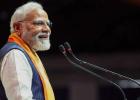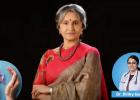- Charcha Patra
- Cancer Catching Young Indians, Why?
Cancer Catching Young Indians, Why?

Cancer is now no longer a disease of older age. In India today,adults in the 20–40 age-bracket are being diagnosed with various cancers that were once largely limited to those 50 and above. As a practising physician, this shift demands urgent attention — both from patients and from the health-system.
The changing face of cancer
Traditionally, we thought of cancer as something that develops slowly over decades as wear-and-tear accumulates. But doctors in major Indian cancer centres are reporting a striking rise in early-onset cases.
For instance, one oncologist in Delhi says that meeting a cancer patient in their 20s used to be a rarity — now, it happens every week.
Reports show that in India, forms of cancer such as breast, colon, lung, stomach, thyroid, uterine and prostate are being diagnosed in younger individuals (even late teens or early-20s) than before.

Why is this happening?
1. Air and environmental pollution – In urban India, the air is thick with fine particulate matter (PM2.5) that penetrates deep into the lungs, damages DNA, causes inflammation and may trigger malignant changes in cells — even in people who never smoked.
2. Lifestyle and stress – Younger professionals often live on adrenaline: late nights, high workloads, poor sleep, instant food, irregular routines. Chronic stress keeps cortisol and adrenaline levels high, suppressing immunity and interfering with DNA-repair mechanisms — creating a conducive environment for cancer to thrive.
3. Diet, body-clock and reproduction factors – Delayed childbirth, shorter or no breastfeeding, high processed-food consumption, lack of exercise and disrupted sleep patterns may contribute to earlier onset of hormone-sensitive cancers (such as breast cancer) in urban India.
4. Genetics, microbiome and unseen toxins – Emerging science indicates that early-onset cancers may differ biologically; gene mutations, gut-microbiome dysbiosis, exposure to microplastics or persistent chemicals may all play a role.
5.Better detection and reporting – While more cases are being found because of better awareness and diagnostics, that alone cannot explain the marked shift downward in age.

Why younger cancer matters
When cancer strikes in one’s 20s or 30s, the consequences ripple far beyond the individual health issue. Young adults are often in their most productive life stage — career growth, family formation, long-term contributions to society.
What can be done? A call to action
1.Awareness & screening: Younger adults should not assume they are immune. Persistent symptoms such as unexplained fatigue, lumps, changes in bowel habits, unexplained weight loss or persistent acidity need evaluation. Early detection improves outcomes significantly.
2.Lifestyle interventions: Avoiding tobacco remains critical, but so too are clean-air initiatives (especially in our cities), healthy diet (rich in fruits/vegetables, low in processed food/preservatives), regular physical activity, sufficient sleep, stress-management and timely reproduction/gynecologic health for women.
3.Environmental policy: This is not merely an individual issue. Clean air, safe food (regulation of preservatives, colouring agents, microplastics), safe workplaces — all are public-health priorities.
4. Support systems for young cancer-patients: From fertility-preservation counselling, psychological support, financial planning to long-term survivorship care — the younger age at diagnosis requires a tailor-made framework.
5. Research & registry: Understanding early-onset cancers in India (molecular differences, lifestyle + environment interactions) will guide better screening, prevention and treatment protocols.
About The Author

Dr. Dinky Gajiwala, DNB (Medicine), DNB (Medical Oncology), is a dedicated Medical Oncologist and Consultant at Hope Cancer Clinic, Surat. She specializes in comprehensive cancer treatment and is passionate about empowering patients through education and awareness. With a strong presence on social media, Dr. Gajiwala actively spreads reliable information on breast cancer, chemotherapy, immunotherapy, and other critical aspects of oncology, making cancer care more accessible and understandable for all.






1.jpg)


















